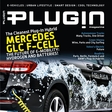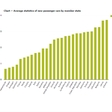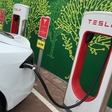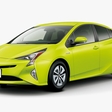
They are determined to cut carbon dioxide output by 80 percent to 95 percent by the year 2050, but that isn't likely to happen unless the radically reduce traffic pollution. According to Deputy Economy Minister Rainer Baake, there would have to be fewer registrations of new gasoline and diesel cars in the next fifteen years, especially since a average car lasts for about twenty years. This may also mean that – by then – selling cars with internal combustion engines would have to be completely abolished. And that's something that's probably not going to happen.
Germany is way behind in reducing CO2 emissions, because it doesn't yet quite know how to deal with truck emissions that are responsible for an entire fifth of the country's carbon dioxide pollution. In the next five years, this particular sector would have to cut some 10 million metric tons of carbon dioxide. The previous year, in 2015, CO2 emissions totaled at about 165 million tons.
Introducing electric cars is also coming along a bit too slowly, as they represent only 0.6 percent of all the cars driving on German roads today. In other words – since January, 130,000 hybrids and 25,000 all-electric cars were registered, and that is very little if you comapare these numbers with 30 million gasoline cars and 14.5 million diesels. By 2025, the share of electric vehicles could rise from 0.6 percent to 8 percent, though. Things could get better when buyers of electric and hybrid cars start benefiting from the state's financial incentives.



